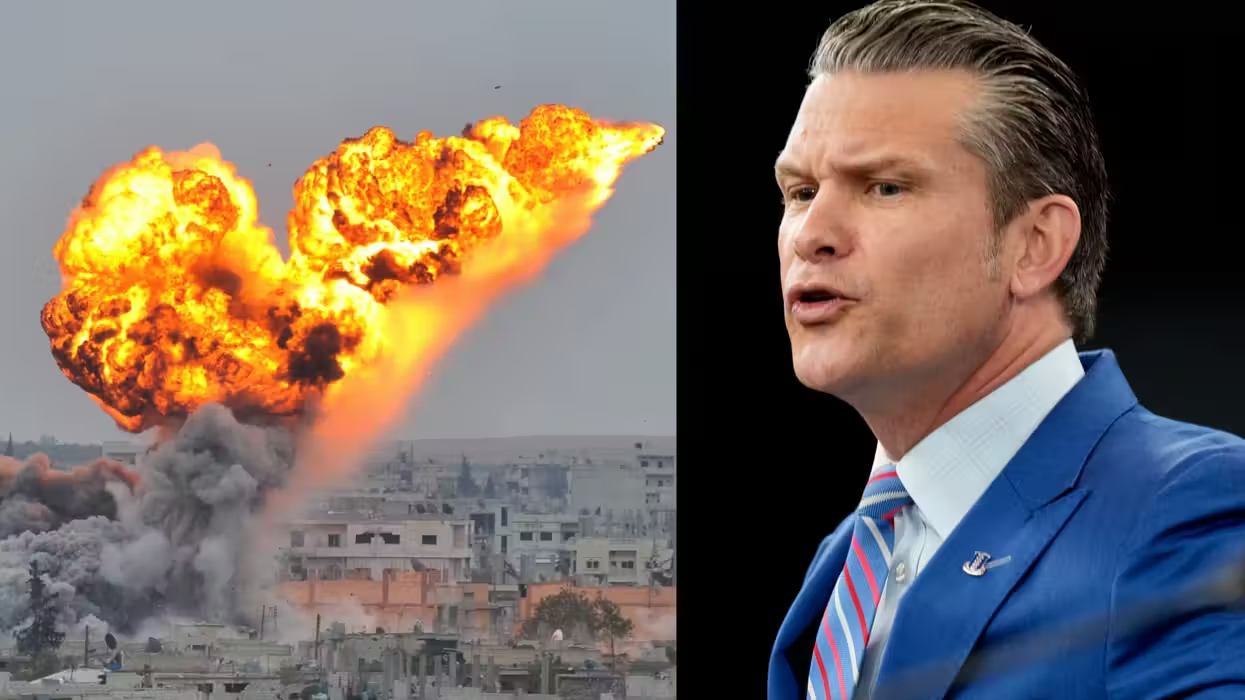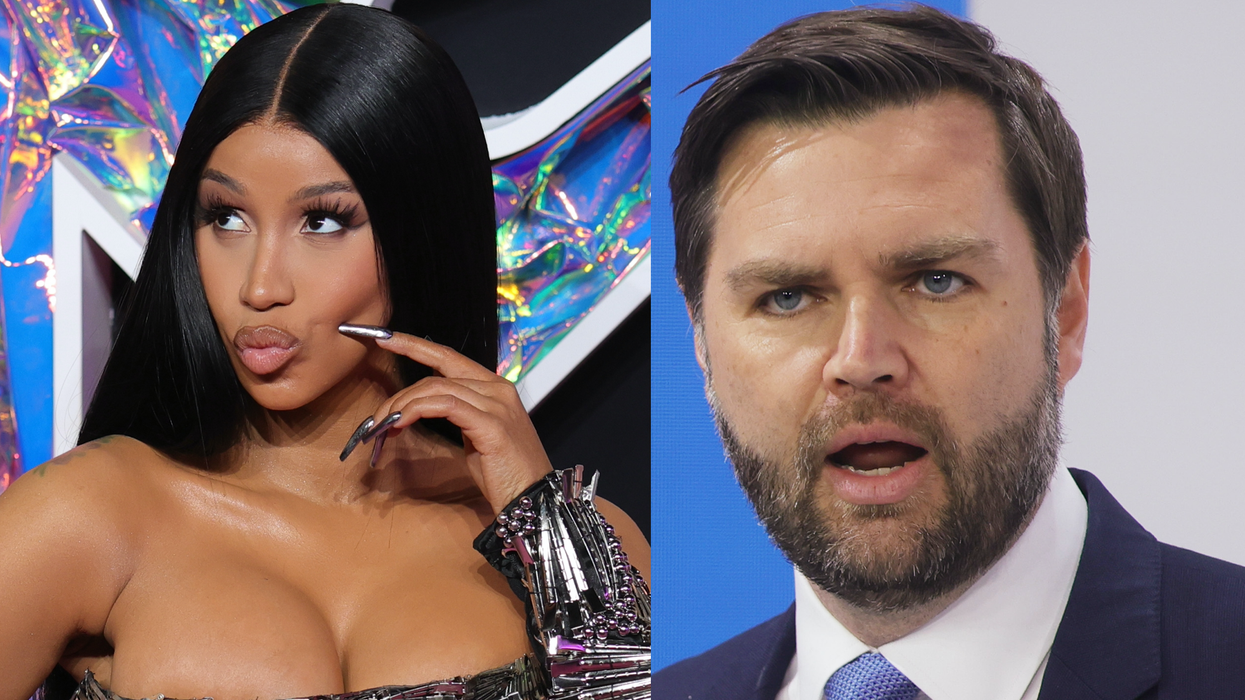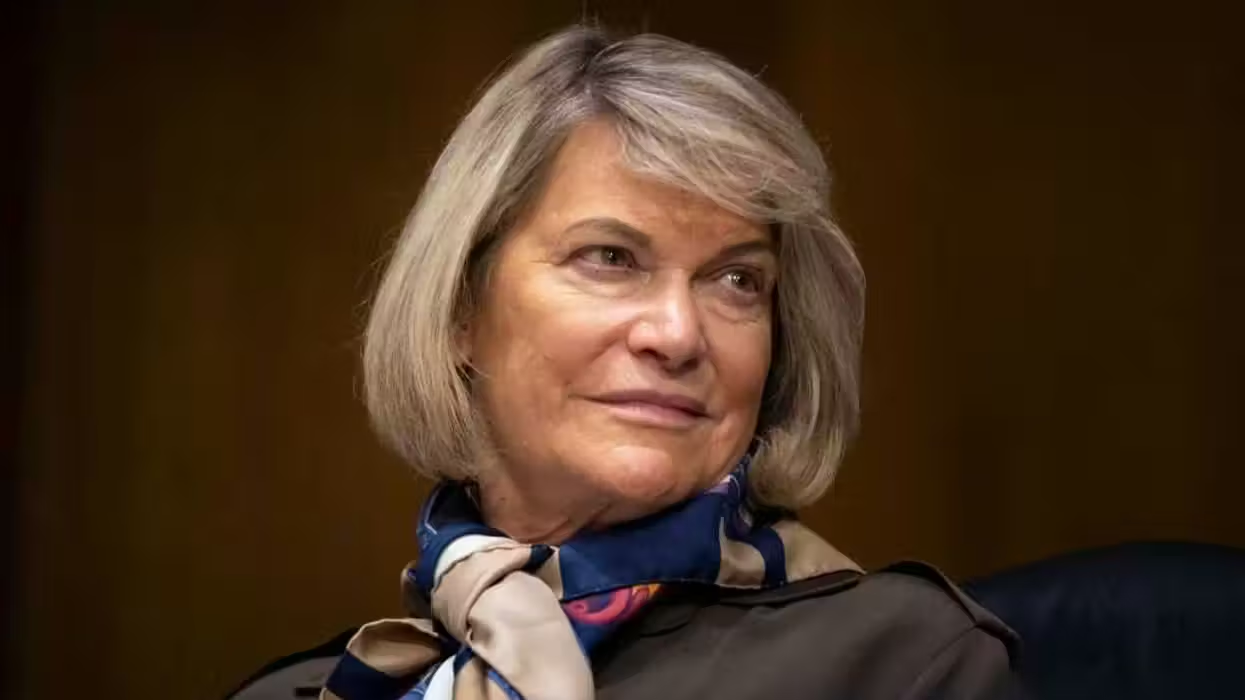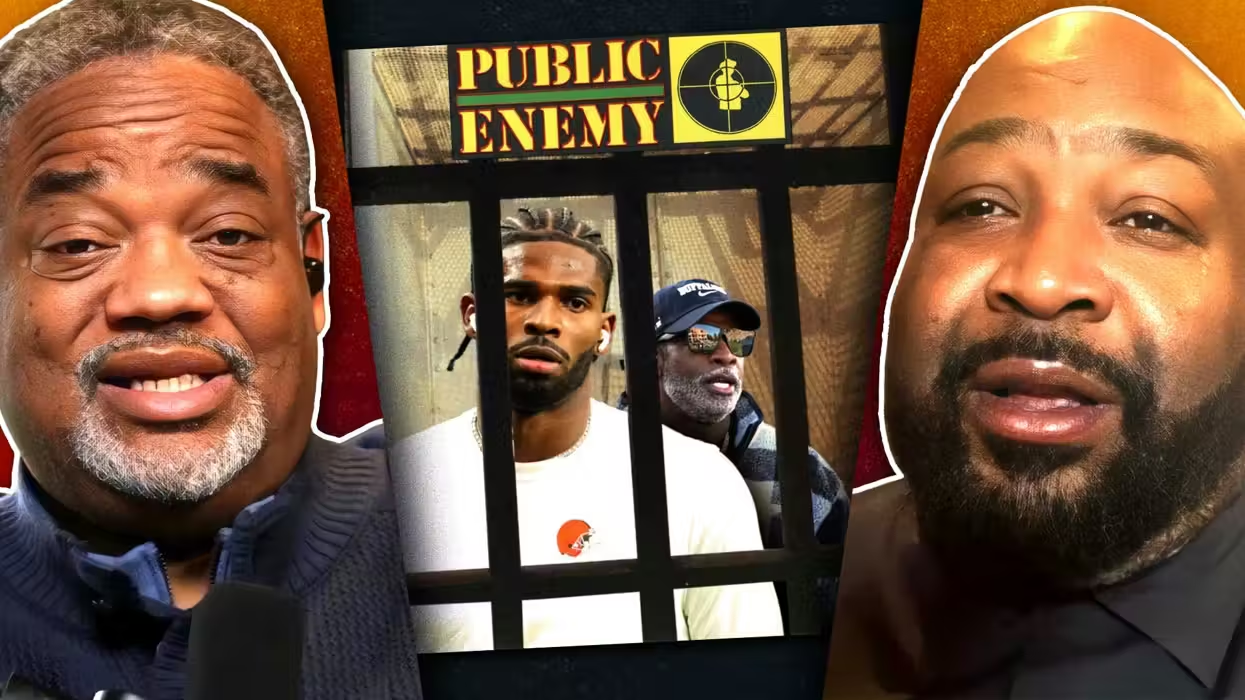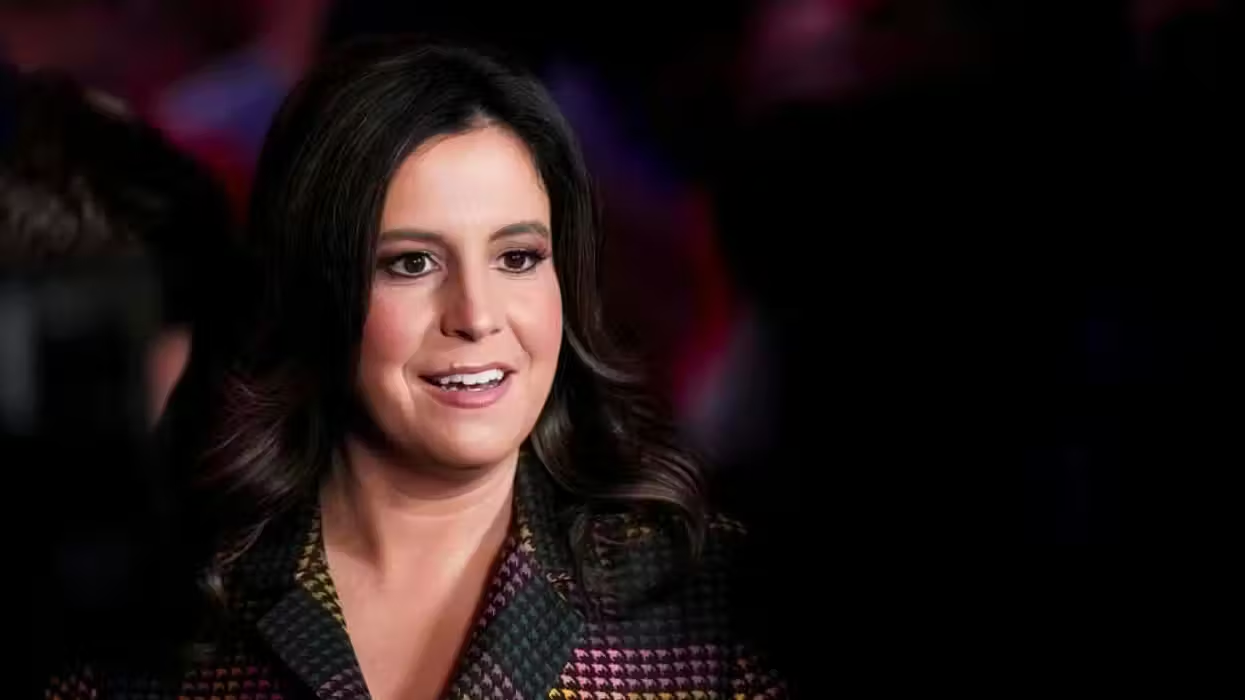Russia's gradual conquest of Ukraine has become the most dangerous challenge to peace and stability in the world since the end of World War II.
I have reason to believe that only a miracle might prevent President Vladimir Putin from rebuilding a new Soviet Union, whose dismantling he once called "the greatest geopolitical catastrophe of the century."
The reason we might be unable to stop Putin is the immense, but unseen, power of disinformation. Our political leaders, influenced by the Kremlin's intense onslaught of disinformation, have been unable—or unwilling—to see that behind its façade of democracy, Russia has become the first intelligence dictatorship in history.
This is a completely new form of government, run by former KGB officers who now own Russia and have billions of dollars in their pockets with which to attract foreign politicians over to their side. According to London’s Guardian newspaper, Putin himself has secretly accumulated more then $40 billion, becoming Europe’s richest man. It is also noteworthy that former German chancellor Gerhard Schroeder heads the shareholders' committee of North Stream AG, a branch of the Russian giant Gazprom, currently in the hands of Dmitry Medvedev, who has been alternating with Putin as Russian president.
 Russian President Vladimir Putin meets with Tyumen region governor Vladimir Yakushev in the Novo-Ogaryovo residence outside Moscow, Wednesday, Feb. 19, 2014. President Vladimir Putin's spokesman, Dmitry Peskov, said in a statement carried by Russian news agencies that Putin had a phone conversation with Ukrainian President Viktor Yanukovych overnight. Peskov said that Putin hasn't given Yanukovych any advice how to settle the crisis, adding that it's up to the Ukrainian government. (AP Photo/RIA-Novosti, Mikhail Metzel, Presidential Press Service)
Russian President Vladimir Putin meets with Tyumen region governor Vladimir Yakushev in the Novo-Ogaryovo residence outside Moscow, Wednesday, Feb. 19, 2014. President Vladimir Putin's spokesman, Dmitry Peskov, said in a statement carried by Russian news agencies that Putin had a phone conversation with Ukrainian President Viktor Yanukovych overnight. Peskov said that Putin hasn't given Yanukovych any advice how to settle the crisis, adding that it's up to the Ukrainian government. (AP Photo/RIA-Novosti, Mikhail Metzel, Presidential Press Service)
So, what miracle might prevent the resuscitation of the all-powerful Soviet Union?
What we need is to have a blockbuster Campaign of Truth unleashed by courageous American media voices, including Glenn Beck and TheBlaze, with the goal of helping the United States and the rest of the world understand how it happened that Russia became an intelligence dictatorship, and what that unique new kind of government really means. The whole "democratic" Russia is a bold lie, and it should be discredited by a fearless barrage of truth.
In the meantime, here is how I see it.
The transformation of Russia into an intelligence dictatorship began on Dec. 31, 1999, when Putin—formerly the head of the political police and a senior reflection of my old Romanian self—self enthroned in the Kremlin. Thereupon, Russia’s first freely elected president, Boris Yeltsin, ceded the field and on national TV announced his resignation [emphasis added]:
“I understand that I must do it, and Russia must enter the new millennium with new politicians, with new faces, with new intelligent, strong, energetic people.”
Yeltsin then signed a decree transferring his power to Putin. For his part, Putin signed a decree pardoning Yeltsin—who was said to be involved in huge bribery scandals—“for any possible misdeeds” and granting him “total immunity” from being prosecuted (or even searched and questioned) for “any and all” actions committed while in office. Putin also gave Yeltsin a lifetime pension and a state dacha.
To me, this quid pro quo had all the elements of a behind-the-scenes KGB putsch.
 People demonstrate in Moscow on January 13, 1991 protesting against the Soviet army crackdown against the nationalist Lithuanian authorities. Demonstrators are seen passing by the KGB building (aka Lubyanka) with the monument of Soviet Committee for State Security (KGB) founder Felix Dzerzhinsky. Lithuania had been the first Baltic Republic to proclame its independence in March 1990. USSR finally recognized the secession of Lithuania in September 1991. Credit: AFP/Getty Images
People demonstrate in Moscow on January 13, 1991 protesting against the Soviet army crackdown against the nationalist Lithuanian authorities. Demonstrators are seen passing by the KGB building (aka Lubyanka) with the monument of Soviet Committee for State Security (KGB) founder Felix Dzerzhinsky. Lithuania had been the first Baltic Republic to proclame its independence in March 1990. USSR finally recognized the secession of Lithuania in September 1991. Credit: AFP/Getty Images
Indeed, three years later, some 6,000 former officers of the KGB—the organization that had slaughtered over 20 million people in the Soviet Union alone—were running Russia’s federal and local governments. Nearly half of all other top governmental positions were held by former officers of the KGB. During the Cold War, the KGB was a state within a state. Under Putin, the KGB, rechristened the FSB, is the state.
Having seen to that, Putin brought back Stalin’s national anthem, which had been prohibited since the collapse of the Soviet Union.
My old KGB colleagues must have been cackling in their graves.
In July 2007, Putin predicted a new Cold War against the West.
“War has started,” he announced on Aug. 8, 2008, just minutes after President George W. Bush and other world leaders, gathered in Beijing to watch the opening ceremony of the Olympic Games, were surprised to learn that Russian tanks had rolled across the Russian border into Georgia.
The Soviet symbols of hammer and sickle were prominently featured at the opening ceremonies of the 2014 Winter Olympics in Sochi, Russia, during a show highlighting the country's history. That show featured performers, clad in the Soviet colors of red and white, flying airplanes and driving cars, while the hammer and sickle hovered over the scene.
Only days after the closing of the Sochi Olympics, Russia invaded the Crimea, which lies within the independent country of Ukraine. Far and away the most important part of the former Soviet Union that Putin needs to recover is Ukraine, if he wants to reconstitute Russia as a 21st century intelligence empire.
 Sculptures and a hammer and sickle are seen floating during the Opening Ceremony of the Sochi Winter Olympics at the Fisht Olympic Stadium on February 7, 2014 in Sochi. AFP PHOTO / LIONEL BONAVENTURE
Sculptures and a hammer and sickle are seen floating during the Opening Ceremony of the Sochi Winter Olympics at the Fisht Olympic Stadium on February 7, 2014 in Sochi. AFP PHOTO / LIONEL BONAVENTURE
Is it too far-fetched to suggest that this new Russia calls up the hypothetical image of a postwar Germany being run by former Gestapo officers, who reinstate Hitler's "Deutschland Über Alles" as national anthem and his swastika as the country's symbol, call the demise of Nazi Germany “the greatest geopolitical catastrophe of the century,” and invade its neighboring countries the way Hitler set off World War II?
So far, no one in the West has called the new Russia a KGB dictatorship, because the Kremlin has been able to divert public attention away from the KGB’s own coup by focusing on the new Russian leader himself. Capitalizing on the fact that Putin spent several years in Germany (actually in Communist East Germany), the Kremlin's disinformation machinery has portrayed him as a delightfully Europeanized man, a Peter the Great for our times.
Putin has been considerably aided in this image by a doting international press. Even President George W. Bush fell in love with the new Peter the Great.
“I looked the man in the eye. I found him to be very straightforward and trustworthy,” the U.S. president said at the end of his first meeting with Putin, in Slovenia.
To take a close look at the new Putin, my wife (an American intelligence analyst) and I set off for Germany, to check out where he had spent his “Europeanizing” years.
In the city of Dresden in formerly communist East Germany—not in democratic West Germany—we learned that the Soviet-German House of Friendship, which Putin had headed for six years, had in fact served as a standard KGB front, according to a briefing we were given by local representatives of the Gauck Commission. (The Gauck Commission was a special post-reunification German group conducting research into the files of the former East German security service, the Stasi.)
 Russian President Vladimir Putin fishing without his shirt on. The series of photos taken last year with the topless leader was the focus of enormous attention. Russia has worked hard to craft an image of a strong, westernized Putin. AP photo
Russian President Vladimir Putin fishing without his shirt on. The series of photos taken last year with the topless leader was the focus of enormous attention. Russia has worked hard to craft an image of a strong, westernized Putin. AP photo
We found out that Putin’s office had been located in the bleak Stasi headquarters building in Dresden. We spent some time in his depressing-looking office, studying the Stasi documents while seated at Putin’s old desk—now a museum piece. His office was inside the prison-like Stasi building, cut off from even the grubby life of normal East Germans by guards with machine guns, flanked by police dogs. Yet the Kremlin’s disinformation breathlessly implied that Putin’s experience in Germany had allowed him to absorb the best of European culture.
The whole story looked to my wife and me just like a glasnost operation aimed at fostering a Westernized façade for an inveterate communist.
Yes, “glasnost.” You probably believe that Gorbachev invented the word glasnost, in order to describe his effort to lead the Soviet Union “out of its totalitarian state and to democracy, to freedom, to openness.” If so, you’re not alone. All of the Western media and most of the Western “experts,” even in intelligence and defense establishments, believed that too—as did the committee that gave Gorbachev the Nobel Peace Prize.
Even the venerable Encyclopedia Britannica defines glasnost as “Soviet policy of open discussion of political and social issues. It was instituted by Mikhail Gorbachev in the late 1980s and began the democratization of the Soviet Union.” Merriam-Webster Dictionary agrees. And American Heritage Dictionary presents glasnost as “an official policy of the former Soviet government emphasizing candor with regard to discussion of social problems and shortcomings.
But glasnost was not invented by Gorbachev, did not emphasize candor, and it did not mean openness or transparency. Glasnost is an old Russian term for polishing the ruler’s image. Originally it meant, literally, publicizing, self-promotion.
In the mid 1930s—half a century before Gorbachev’s glasnost—the official Soviet Encyclopedia defined the word glasnost as a spin on news released to the public: “Dostupnost obshchestvennomy obsuzhdeniyu, kontrolyu; publichnost,” meaning, the quality of being made available for public discussion or control. Glasnost implied no idea of frankness or integrity.
 US President Barack Obama (L) holds a bilateral meeting with Russian President Vladimir Putin during the G8 summit at the Lough Erne resort near Enniskillen in Northern Ireland, on June 17, 2013. Credit: AFP/Getty Images
US President Barack Obama (L) holds a bilateral meeting with Russian President Vladimir Putin during the G8 summit at the Lough Erne resort near Enniskillen in Northern Ireland, on June 17, 2013. Credit: AFP/Getty Images
All dictatorial powers use the tools, however humble, that are available to them.
Today, few Russians like to admit they worshipped Stalin. Not many Nazi admirers could be found in Germany after World War II, either. But in March 1953, when Stalin died ignominiously while trying to sober up in a scorching sauna after a long drinking bout with his crony, Nikita Khrushchev, four million people wept in Red Square at Stalin’s funeral. Sirens wailed, bells tolled, cars blew their horns and work stopped all around the country.
At that time, I was already a Soviet bloc intelligence officer. I was not yet, however, aware that a tyrant's image was so important that he would go to any lengths—even to the point of killing and imprisoning millions, rewriting history, destroying institutions, manipulating religion, and changing traditions—all in an effort to beautify himself or demonize his competitors and enemies.
In 1956, the KGB leaked Khrushchev’s “secret speech” to the West, and I got involved in my first glasnost aimed at embellishing a tyrant.
Our task was to spread the lie that Khrushchev had reinvented communism. We were to persuade the West, bit by bit, that the Soviet Union was being reborn—economically self-sufficient, friendlier to its people, and able to co-exist peacefully with capitalism. Khrushchev was to be promoted as a new breed whom the West could trust more than the one before. In this way, we could achieve the hiatus in the Cold War that we needed to ensure our survival against our much more powerful foe.
This was Khrushchev’s take on glasnost.
 A performer dressed in Red Army uniform salutes at a revolutionary song singing event to celebrate the upcoming 90th anniversary of the founding of the Communist Party of China (CPC), in Chongqing municipality June 28, 2011. Photo Credit: REUTERS/Jason Lee
A performer dressed in Red Army uniform salutes at a revolutionary song singing event to celebrate the upcoming 90th anniversary of the founding of the Communist Party of China (CPC), in Chongqing municipality June 28, 2011. Photo Credit: REUTERS/Jason Lee
Does that sound familiar? China, too, has permitted managed openness about the atrocities of former leader Mao Zedong and his Chinese Cultural Revolution, to persuade the West that the country is in the process of self-rehabilitation and to entice others into trade, détente and normalized relations. Yes, there has been some loosening of the chains on the Chinese people. But that has been at the expense of entrenching and enriching the same clique of Communist Party bosses who prospered under Mao. Meanwhile, much of China’s new wealth has been plowed into a dangerous military build-up that now is threatening the U.S.
Sixteen years after Khrushchev’s glasnost, I found myself running an enormous glasnost machinery designed to portray Romania’s tyrant Ceausescu to the world as a great, Westernized leader.
For those who may not remember Ceausescu, let me just say he was a Romanian version of Russia’s Putin. Ceausescu had also supervised his country’s political police before becoming supreme leader. Behind the scenes, his political police also ruled over party politics as a means to power. Ceausescu put it his way: When one does not want to show one’s real hair, one wears a wig. His wig was Romania's newly created Parliament, which for Ceausescu was just a "yakkity-yak," a place where people sat around beating their gums.
For him—as for Putin—glasnost was the mother and father of everything.
Ceausescu's glasnost worked like a charm. Today, no one remembers that he was once the West's fair-haired boy. Contemporary political memory seems to be increasingly afflicted with a kind of a convenient Alzheimer's disease. But in the 1970s, Bucharest became an East European Mecca, filled to the brim with Western journalists and politicians trying to get a closer look at the man who had dared to amend Marxism. Western businessmen rushed to Bucharest, hoping to get in on the ground floor for a slice of the “new” Romania. Numerous Western academics also wound up spouting our glasnost line.
 Some of the more than ten thousand of pro-Kremlin demonstrators holding Moscow and St. George flags and a poster depicting President Putin in a naval hat march in central Moscow, Russia, Sunday, March 2, 2014 to express support latest development in Russian-Ukrainian relations. The poster reads : "Sovereignty! Because I Love Russia! V. Putin" (AP Photo/Pavel Golovkin)
Some of the more than ten thousand of pro-Kremlin demonstrators holding Moscow and St. George flags and a poster depicting President Putin in a naval hat march in central Moscow, Russia, Sunday, March 2, 2014 to express support latest development in Russian-Ukrainian relations. The poster reads : "Sovereignty! Because I Love Russia! V. Putin" (AP Photo/Pavel Golovkin)
Laura D’Andrea Tyson, dean of the London Business School, who would become national economic adviser to President Bill Clinton and who also served as an economic adviser to President Barack Obama, wrote a Ph.D. dissertation on the supposed merits of the allegedly socialist-capitalist economies in Romania and Yugoslavia. This idea became all the rage in politically liberal circles, as Ceausescu's glasnost also poisoned the study of economics.
Two American presidents and one vice president went to Bucharest to pay Ceausescu tribute—none had ever gone there before.
Eventually, Ceausescu himself shattered the smiling glasnost mask he had shown to the West for more than 15 years. In December 1989, in a desperate attempt to stop Eastern Europe's wave of democratic revolution from entering Romania, he ordered his security and armed forces to fire live ammunition against the insurgents, and he was overthrown and executed.
From one day to the next, the formerly feted Ceausescu became the symbol of communist tyranny. By that time, however, Washington and the rest of the West had shifted their affections to the new man in the Kremlin, Mikhail Gorbachev.
Almost all Western governments viewed Gorbachev as a political visionary and truly believed that his theory about combining "communist values" with "Western democracy introduced from the top" and with a "centralized free market economy" would modernize the Soviet Union and make its economy self-sufficient. Gorbachev's "Perestroika: New Thinking for Our Country and the World," which replaced Ceausescu's books in the windows of Western bookstores, was now seen as the key to détente and stability in the world.
Few people have looked back to speculate about how they could have been so misled. Such details became just an arcane footnote to the history of foreign policy.
Two days after Sept. 11, 2001, my wife and I landed in Berlin. We were having lunch with friends at the enormous KaDeWe department store, and I wandered off to get some food for dinner. The food manager, noticing the American flag on my lapel, came up to me and asked if I was an American. “Champagne for everyone,” he ordered, when I told him I had just flown over from the U.S. “Without America and the Airlift, we would be speaking Russian now,” he explained.
I hope Glenn Beck and TheBlaze will do everything possible to persuade the world to protect not only Ukraine, but the rest of Eastern Europe, from ever being forced to speak Russian again.
–
TheBlaze contributor channel supports an open discourse on a range of views. The opinions expressed in this channel are solely those of each individual author.

 Russian President Vladimir Putin meets with Tyumen region governor Vladimir Yakushev in the Novo-Ogaryovo residence outside Moscow, Wednesday, Feb. 19, 2014. President Vladimir Putin's spokesman, Dmitry Peskov, said in a statement carried by Russian news agencies that Putin had a phone conversation with Ukrainian President Viktor Yanukovych overnight. Peskov said that Putin hasn't given Yanukovych any advice how to settle the crisis, adding that it's up to the Ukrainian government. (AP Photo/RIA-Novosti, Mikhail Metzel, Presidential Press Service)
Russian President Vladimir Putin meets with Tyumen region governor Vladimir Yakushev in the Novo-Ogaryovo residence outside Moscow, Wednesday, Feb. 19, 2014. President Vladimir Putin's spokesman, Dmitry Peskov, said in a statement carried by Russian news agencies that Putin had a phone conversation with Ukrainian President Viktor Yanukovych overnight. Peskov said that Putin hasn't given Yanukovych any advice how to settle the crisis, adding that it's up to the Ukrainian government. (AP Photo/RIA-Novosti, Mikhail Metzel, Presidential Press Service)

